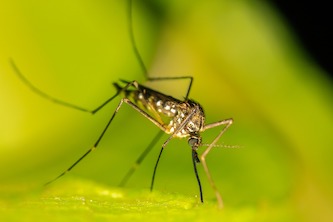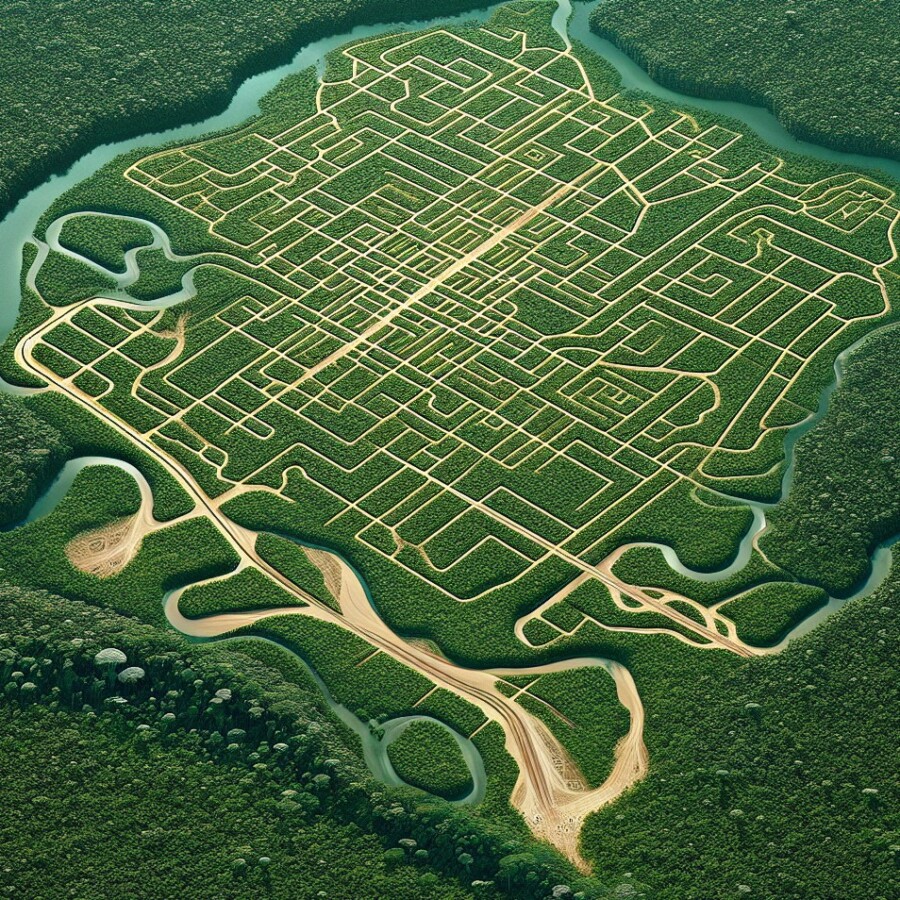The US Food and Drug Administration has recently approved the world’s first vaccine for chikungunya, a disease transmitted by mosquitoes. Chikungunya causes fever and joint pains and can be fatal to newborns. The FDA’s approval is expected to accelerate the vaccine’s global distribution. This year, approximately 440,000 cases of chikungunya, including 350 deaths, have been reported as of September. Currently, there is no specific drug to treat chikungunya, and South America and South Asia have seen the highest number of cases this year.
The vaccine, named Ixchiq, has been approved for individuals aged 18 and above who are at high risk of contracting the disease. It was developed by Europe’s Valneva and will be administered in a single shot. According to senior FDA official Peter Marks, chikungunya virus infection can lead to severe disease and prolonged health problems, particularly for older adults and individuals with underlying medical conditions. Since 2008, at least five million chikungunya cases have been reported, with symptoms including rashes, headaches, and muscle pain. Joint pains can persist for months or even years.
People in tropical and subtropical regions of Africa, Southeast Asia, and parts of the Americas are at the highest risk of infection due to the endemic nature of mosquitos carrying the chikungunya virus in these areas. However, the FDA noted that the virus has spread to new geographical areas, leading to a rise in the global prevalence of the disease. Brazil has reported the highest number of cases so far this year, with 218,613, while India has reported over 93,000 cases, including a large outbreak in the capital, Delhi, in 2016.
Original news source: Chikungunya vaccine: US approves first shot against mosquito-borne virus (BBC)
Listen
Slow
Normal
Fast
Group or Classroom Activities
Warm-up Activities:
– News Summary
Instructions: Pair up students and ask them to take turns summarizing the article to each other, focusing on the key points such as what chikungunya is, the recent FDA approval of the vaccine, and the statistics on the disease’s prevalence. Each student should summarize in under two minutes, then receive feedback from their partner on clarity and completeness.
– Opinion Poll
Instructions: Create a list of statements about the approval of the new vaccine and its potential impact on global health. Students walk around the room and poll their classmates on whether they agree or disagree with each statement. After polling, discuss the results as a class and encourage students to explain their opinions.
– Keyword Taboo
Instructions: Write keywords from the article (e.g., vaccine, chikungunya, FDA, mosquito, Valneva, Ixchiq) on cards. Students work in teams to describe the words to their team members without using the taboo words listed on the card. The team with the most correctly guessed words wins.
– Synonym Challenge
Instructions: Select a set of words from the article (e.g., accelerate, fatal, specific, severe, prolonged, endemic) and challenge students to come up with synonyms for each word without repeating any. This can be done in small groups or as a whole class activity, with students raising their hands to contribute.
– Future Predictions
Instructions: Have students write a short paragraph predicting the future impact of the Ixchiq vaccine on global health. They should consider factors like accessibility, effectiveness, and the response in regions with high rates of chikungunya. After writing, students can share their predictions with the class and discuss the various viewpoints.
Comprehension Questions:
1. What disease does the world’s first vaccine approved by the FDA target?
2. What symptoms are caused by chikungunya?
3. How many cases and deaths from chikungunya have been reported as of September this year?
4. What is the name of the vaccine that has been approved for chikungunya?
5. For which age group is the Ixchiq vaccine approved?
6. Who developed the Ixchiq vaccine?
7. In which regions are people at the highest risk of contracting chikungunya?
8. Which two countries have reported the highest number of chikungunya cases this year?
Go to answers ⇩
Listen and Fill in the Gaps:
The US Food and Drug Administration has recently approved the world’s first vaccine for chikungunya, a (1)______ transmitted by mosquitoes. Chikungunya (2)______ fever and joint pains and can be (3)______ to newborns. The FDA’s approval is expected to accelerate the vaccine’s global distribution. This year, approximately 440,000 cases of chikungunya, including 350 deaths, have been reported as of (4)______. Currently, there is no specific drug to treat chikungunya, and (5)______ America and South Asia have seen the highest number of (6)______ this year.
The (7)______, named Ixchiq, has been approved for individuals aged 18 and above who are at high risk of contracting the disease. It was developed by Europe’s Valneva and will be administered in a single shot. (8)______ to senior FDA official Peter Marks, chikungunya virus infection can lead to severe disease and prolonged health problems, particularly for older adults and individuals with (9)______ medical conditions. Since 2008, at least five million chikungunya cases have been reported, with (10)______ including rashes, (11)______, and muscle pain. (12)______ pains can persist for months or even years.
People in tropical and subtropical regions of Africa, Southeast Asia, and parts of the Americas are at the highest risk of infection due to the endemic (13)______ of mosquitos carrying the chikungunya virus in these areas. However, the FDA noted that the virus has spread to new geographical areas, (14)______ to a rise in the (15)______ prevalence of the disease. Brazil has reported the highest number of cases so far this year, with 218,613, while India has reported over 93,000 cases, including a large outbreak in the capital, (16)______, in 2016.
Go to answers ⇩
Discussion Questions:
Students can ask a partner these questions, or discuss them as a group.
1. What is your understanding of the term “endemic” as it relates to diseases?
2. How would you feel if a vaccine for a disease prevalent in your region was finally approved?
3. Do you think vaccines are the best way to combat mosquito-borne diseases? Why or why not?
4. Have you or someone you know ever been affected by a mosquito-borne illness? What was the experience like?
5. What measures do you take to protect yourself from mosquito bites and why?
6. Do you believe that vaccines should be mandatory for those traveling to high-risk areas? Why or why not?
7. How do you think the approval of a new vaccine like Ixchiq affects global health?
8. What is your opinion on the age restriction (18 and above) for the chikungunya vaccine?
9. How do you feel about the fact that there is no specific drug to treat chikungunya?
10. In your opinion, what are the ethical considerations of distributing vaccines to countries with the highest number of cases?
11. Do you think climate change could be contributing to the spread of tropical diseases like chikungunya? Why or why not?
12. What is your stance on the importance of global cooperation in disease prevention and control?
13. How would you react to a large outbreak of a disease like chikungunya in your city?
14. Do you like the idea of a single-shot vaccine, or do you think a multiple-dose vaccine is more effective? Why?
15. Do you think that the approval of the chikungunya vaccine will lead to complacency in mosquito control efforts? Why or why not?
Individual Activities
Vocabulary Meanings:
Match each word to its meaning.
Words:
1. vaccine
2. chikungunya
3. FDA
4. mosquito
5. Valneva
6. Ixchiq
7. endemic
8. Brazil
Meanings:
(a) The US Food and Drug Administration
(b) The endemic nature of mosquitos carrying the virus
(c) The highest number of cases reported this year
(d) A single shot vaccine
(e) A disease transmitted by mosquitoes
(f) A company that developed the vaccine
(g) A type of virus-carrying insect
(h) The world’s first approved for chikungunya
Go to answers ⇩
Multiple Choice Questions:
1. What is the name of the world’s first vaccine for chikungunya?
(a) Ixchiq
(b) Valneva
(c) Marks
(d) FDA
2. How many cases of chikungunya, including 350 deaths, have been reported as of September this year?
(a) 440,000
(b) 350,000
(c) 400,000
(d) 500,000
3. Who developed the Ixchiq vaccine?
(a) FDA
(b) Valneva
(c) Peter Marks
(d) Europe
4. What are the symptoms of chikungunya?
(a) Fever and joint pains
(b) Rashes, headaches, and muscle pain
(c) Cough, sore throat, and fatigue
(d) Nausea, vomiting, and diarrhea
5. Who is at the highest risk of chikungunya infection due to the endemic nature of mosquitos carrying the virus?
(a) People in Europe and North America
(b) People in the Arctic and Antarctic regions
(c) People in the Middle East and Central Asia
(d) People in tropical and subtropical regions of Africa, Southeast Asia, and parts of the Americas
6. Which country has reported the highest number of chikungunya cases so far this year?
(a) India
(b) South Africa
(c) Brazil
(d) Thailand
7. How long can joint pains persist for in chikungunya patients?
(a) A few weeks
(b) A few days
(c) Indefinitely
(d) Months or even years
8. What is the age range for individuals who are approved to receive the Ixchiq vaccine?
(a) 12 and above
(b) 65 and above
(c) 18 and above
(d) 50 and above
Go to answers ⇩
True or False Questions:
1. This year, approximately 440,000 cases of chikungunya, including 350 deaths, have not been reported as of September.
2. At least five million chikungunya cases have been reported since 2008, with symptoms including rashes, headaches, and muscle pain.
3. The vaccine was not developed by Europe’s Valneva and will not be administered in a single shot.
4. The FDA’s approval is expected to accelerate the vaccine’s global distribution.
5. The US Food and Drug Administration has approved the world’s first vaccine for chikungunya, a disease transmitted by mosquitoes.
6. Chikungunya causes fever and joint pains and can be fatal to newborns.
7. The vaccine, named Ixchiq, has not been approved for individuals aged 18 and above who are at high risk of contracting the disease.
8. Brazil has not reported the highest number of chikungunya cases so far this year, with 218,613.
Go to answers ⇩
Write a Summary:
Write a summary of this news article in two sentences.
Check your writing now with the best free AI for English writing!
Writing Questions:
Answer the following questions. Write as much as you can for each answer.
Check your answers with our free English writing assistant!
1. What is the name of the world’s first vaccine for chikungunya approved by the US Food and Drug Administration?
2. What are the common symptoms of chikungunya as mentioned in the article?
3. Who is eligible to receive the Ixchiq vaccine, and how is it administered?
4. What has been the impact of chikungunya in terms of reported cases and deaths this year?
5. Which two countries have seen the highest number of chikungunya cases, and what specific outbreak is mentioned in the article?
Answers
Comprehension Question Answers:
1. What disease does the world’s first vaccine approved by the FDA target?
The world’s first vaccine approved by the FDA targets chikungunya.
2. What symptoms are caused by chikungunya?
Symptoms caused by chikungunya include fever, joint pains, rashes, headaches, and muscle pain. Joint pains can persist for months or even years.
3. How many cases and deaths from chikungunya have been reported as of September this year?
As of September this year, approximately 440,000 cases of chikungunya, including 350 deaths, have been reported.
4. What is the name of the vaccine that has been approved for chikungunya?
The name of the vaccine that has been approved for chikungunya is Ixchiq.
5. For which age group is the Ixchiq vaccine approved?
The Ixchiq vaccine is approved for individuals aged 18 and above.
6. Who developed the Ixchiq vaccine?
The Ixchiq vaccine was developed by Europe’s Valneva.
7. In which regions are people at the highest risk of contracting chikungunya?
People in tropical and subtropical regions of Africa, Southeast Asia, and parts of the Americas are at the highest risk of contracting chikungunya.
8. Which two countries have reported the highest number of chikungunya cases this year?
Brazil and India have reported the highest number of chikungunya cases this year, with Brazil reporting 218,613 cases and India reporting over 93,000 cases.
Go back to questions ⇧
Listen and Fill in the Gaps Answers:
(1) disease
(2) causes
(3) fatal
(4) September
(5) South
(6) cases
(7) vaccine
(8) According
(9) underlying
(10) symptoms
(11) headaches
(12) Joint
(13) nature
(14) leading
(15) global
(16) Delhi
Go back to questions ⇧
Vocabulary Meanings Answers:
1. vaccine
Answer: (e) A disease transmitted by mosquitoes
2. chikungunya
Answer: (h) The world’s first approved for chikungunya
3. FDA
Answer: (a) The US Food and Drug Administration
4. mosquito
Answer: (f) A company that developed the vaccine
5. Valneva
Answer: (d) A single shot vaccine
6. Ixchiq
Answer: (c) The highest number of cases reported this year
7. endemic
Answer: (g) A type of virus-carrying insect
8. Brazil
Answer: (b) The endemic nature of mosquitos carrying the virus
Go back to questions ⇧
Multiple Choice Answers:
1. What is the name of the world’s first vaccine for chikungunya?
Answer: (a) Ixchiq
2. How many cases of chikungunya, including 350 deaths, have been reported as of September this year?
Answer: (a) 440,000
3. Who developed the Ixchiq vaccine?
Answer: (b) Valneva
4. What are the symptoms of chikungunya?
Answer: (b) Rashes, headaches, and muscle pain
5. Who is at the highest risk of chikungunya infection due to the endemic nature of mosquitos carrying the virus?
Answer: (d) People in tropical and subtropical regions of Africa, Southeast Asia, and parts of the Americas
6. Which country has reported the highest number of chikungunya cases so far this year?
Answer: (c) Brazil
7. How long can joint pains persist for in chikungunya patients?
Answer: (d) Months or even years
8. What is the age range for individuals who are approved to receive the Ixchiq vaccine?
Answer: (c) 18 and above
Go back to questions ⇧
True or False Answers:
1. This year, approximately 440,000 cases of chikungunya, including 350 deaths, have not been reported as of September. (Answer: False)
2. At least five million chikungunya cases have been reported since 2008, with symptoms including rashes, headaches, and muscle pain. (Answer: True)
3. The vaccine was not developed by Europe’s Valneva and will not be administered in a single shot. (Answer: False)
4. The FDA’s approval is expected to accelerate the vaccine’s global distribution. (Answer: True)
5. The US Food and Drug Administration has approved the world’s first vaccine for chikungunya, a disease transmitted by mosquitoes. (Answer: True)
6. Chikungunya causes fever and joint pains and can be fatal to newborns. (Answer: True)
7. The vaccine, named Ixchiq, has not been approved for individuals aged 18 and above who are at high risk of contracting the disease. (Answer: False)
8. Brazil has not reported the highest number of chikungunya cases so far this year, with 218,613. (Answer: False)
Go back to questions ⇧















